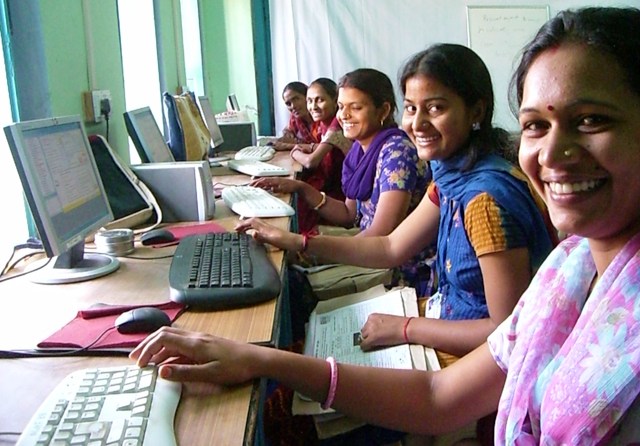The Transition Of Women In Urban India Today

NEW DELHI: It is great that signs of women empowerment are many in India: Women joining the workforce in greater numbers is just one of the many signs of such empowerment. Increasing vigilance in hospitals over sex discrimination by pregnant women is another positive sign towards acceptance of women. However, there is also a downside to viewing empowerment of women in only such a manner. This downside is reflected by women who truly seem to have it all: a family life as well as well as a career and therefore, the combination of fulfillment from and satisfaction of work commitments as well as fulfillment of and satisfaction from family commitments. Many such women, it should be noted are blessed with a high quality of life, be it from the country-based institutional arrangements or the emotional support system that they are themselves privileged enough to access.
If ‘anatomy is destiny,’ then it remains to be seen whether empowered women will want to have a sense of balance in their lives. Furthermore, the society that empowered women, in India, usually come into interaction with have a tendency to put such women in a box. As a result, the ability to show agency in other areas of life is equally another exercise in showing empowerment. While I myself have the privilege to be aware by education as well as by experience in other countries through study and travel that India, especially in the urban context, is at a very interesting point of transition and point of comparison with developed countries.
It is in the urban areas that one sees the push and pull of the duality that many of its inhabitants have to live with, be it in thought or via deliberate action. For example, the duality refers to embracing what one is exposed to by the media in Western programming shown on Television and which in turn is regulated by institutional arrangements that exist for women after dark, and influenced by the consideration of safety and perception of women at this time of day. While conservative people are of the perspective that safety of women should be considered first and foremost, it should not come in the way of going out in the world and creating or finding an emotional support system to one’s liking.
By placing women in the box of being empowered via careers is also now affecting the other aspects of their lives. I forsee such women leading lives that are boxes in their entirety and therefore on another note, continous learning and having hobbies is so important, throughout life. This is because continuous learning ensures that the full potential of life is actually something that one is aware of.
Having a career and a social life can co-exist but one should question whether social life is solely limited within the confines of the institution of marriage. As Simone de Beauvoir wrote in her major piece of work, ‘The Second Sex,’ on the institution of marriage, “but the principle of marriage is obscene because it transforms an exchange that should be founded on a spontaneous impulse into rights and duties,” then the expectations of women with career from marriage should not be viewed through rose-tinted glasses.
More importantly, many women who are in positions of empowerment through career should at the very least be prepared for existential crises at such point in terms of their own self-identity. In the meantime, women, from all walks of life and not necessarily those who have careers should not be afraid to exercise their agency and step out of their comfort zones in a deliberate and methodical manner.



